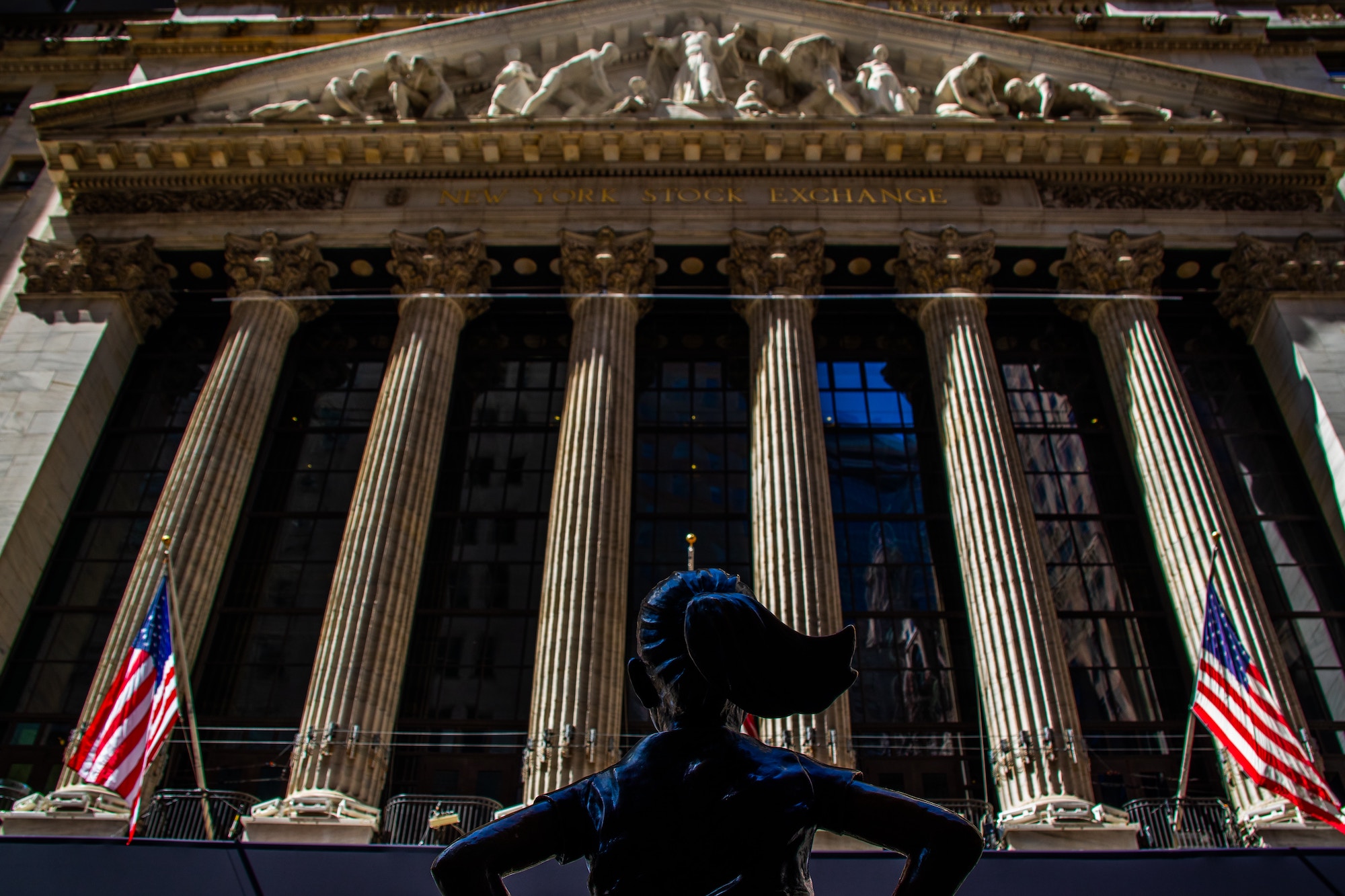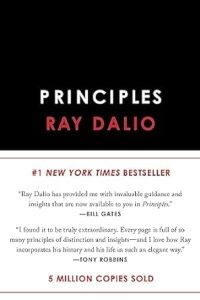
31 Jul The childhood of Ray Dalio
If you’ve ever dabbled in the world of finance or entrepreneurship, you’ve likely come across the name Ray Dalio. He’s the powerhouse investor who built Bridgewater Associates from the ground up into one of the world’s largest hedge funds. And he didn’t stop there. Dalio is also known for his thoughtful insights on life and work, explained in his bestselling book, Principles. But, have you ever wondered how Ray Dalio, this financial titan, got his start?
How was Ray Dalio raised?
Today, we’re going to explore Ray Dalio’s humble beginnings, the role of his parents, and the key experiences that shaped this young boy from New York City into a leading light in the investment world. Together, we’ll draw out lessons that can inspire and guide us in nurturing our own children towards their personal success.
Ray Dalio’s parents
Dalio hails from the Jackson Heights neighbourhood of New York City, born in 1949 to a middle-class family. His mother was a homemaker, providing a nurturing and stable home environment. His father, a jazz musician, brought an element of creativity and innovation into the household. They weren’t wealthy, but what Dalio’s family lacked in financial resources, they made up for in values that would become instrumental in his rise to success.
Dalio’s parents encouraged a strong work ethic, and valued creativity and problem-solving. His father’s passion for music and his mother’s dedication to their home might not scream ‘finance’, but they instilled in young Dalio a sense of discipline and the ability to think creatively. They taught him the importance of dedication and practice, whether crafting a melody or a market strategy.
This early life might sound a bit ordinary on the surface, but as Dalio’s story unfolds, you’ll see how these day-to-day experiences, the values instilled by his parents, and the lessons learned, contributed to building a financial genius.
Ray Dalio’s education
Dalio’s journey through academia might surprise you. He wasn’t your stereotypical future billionaire investor, excelling in every subject. In fact, Dalio was a fairly average student during his early school years. He was more of a curious mind than a straight-A pupil. But something clicked when he went to college, and things started to shift.
Dalio attended C.W. Post College, where he discovered a passion for finance. He graduated with a degree in this field before moving on to Harvard Business School for an MBA. His time at these institutions helped to focus his curious mind and provided the technical knowledge he would later need.
But there was more to Dalio’s education than textbooks and lectures.
Beyond school
Early on, Dalio held a variety of jobs, including a paper route and a stint in a local hardware store. But his most influential job was as a caddie at a golf club. This job gave him the chance to interact with successful businesspeople and investors. It was one of these interactions that ignited his interest in the stock market, leading him to buy shares in Northeast Airlines at just 12 years old. When the airline later merged with another company, Dalio tripled his investment.
Dalio’s journey reminds us that it’s not just about grades or attending prestigious institutions. As parents, we should value and nurture curiosity, independent thought, and a strong work ethic in our children. After all, like Dalio, every child has their unique path to success.
Character building experiences and early career
Every successful individual has experiences that mould their character, and Dalio is no exception. After graduating from Harvard Business School, Dalio didn’t immediately jump into founding his own company. Instead, he joined a commodities division at Merrill Lynch. From there, he moved to the New York Stock Exchange, working in futures trading.
These experiences helped Dalio to develop a deep understanding of the world of finance. He saw the potential of strategic investment and built relationships with key players in the industry. However, he also learned some hard lessons. One of the most significant was in the late 1970s when he incorrectly predicted a financial crisis. The consequence? He lost money for his clients and even had to let go of many of his employees.
As difficult as it was, Dalio didn’t let this failure define him. He viewed it as a lesson in humility and a reminder of the importance of balance and diversification. The experience was pivotal in developing his ‘Principles‘ – a set of rules and guidelines for decision-making that he continues to live by and share with others.
Founding Bridgewater Associates
So, how did Dalio go from these experiences to founding Bridgewater Associates? It wasn’t an overnight success. Dalio spent the years following his early career setback rethinking his approach and refining his investment strategies. He started Bridgewater from his two-bedroom apartment in 1975.
Slowly but surely, with the application of his principles and the lessons learned from his past failures, he built the company into what it is today – one of the world’s largest hedge funds.
Dalio’s wealth, success and philanthropy
Today, Dalio stands tall as one of the world’s wealthiest individuals, but his accomplishments extend far beyond financial gain. His success is a testament to his resilience, constant learning, and unwavering commitment to his guiding principles. As the founder of Bridgewater Associates, he transformed the hedge fund into a global powerhouse, managing billions in assets and earning accolades as a pioneer in the finance world.
But even amidst his triumphs, Dalio maintains a deep sense of purpose beyond profit. He and his wife, Barbara, have dedicated themselves to philanthropy through their organisation, Dalio Philanthropies. With initiatives like the Dalio Education program, they’ve generously supported education, healthcare, and community development projects. Their contributions have touched countless lives, shining a light on the importance of giving back and making a positive impact on society.
So, as parents and educators, what can we take from Dalio’s story?
Lessons and takeaways for parents
1. Embrace failure as a learning opportunity: Remember, setbacks are stepping stones on the path to success. Teach your children that it’s okay to stumble along the way. Each failure is a chance to learn, grow, and come back even stronger.
2. Nurture curiosity and independent thinking: Encourage exploration and curiosity in your children. Embrace their unique interests and perspectives. Fostering independent thinking will empower them to navigate the world with confidence.
3. Instil a strong work ethic: Show the value of hard work and perseverance. When children see the effort you put into your endeavours, they’ll be inspired to apply the same dedication to their own passions.
4. Value character development: Character is the foundation of success. Teach your children about empathy, integrity, and kindness. A strong character will guide them through life’s challenges with grace.
5. Encourage diverse experiences: Embrace the unconventional. Encourage your children to try different activities and experiences. Each adventure brings unique lessons and opportunities.
6. Live by guiding principles: Develop family principles together. Honest communication, accountability, and compassion form a strong framework for making wise decisions.
Ray Dalio is so prominent in the world of business and his ideas so deeply studied that you can even get investment guidance from an AI version of Ray Dalio!
Final words
As we conclude our journey through the formative years of Ray Dalio, we’re armed with invaluable insights to empower our own children’s paths to success. From embracing failure as a learning opportunity to fostering curiosity and independent thinking, each lesson serves as a guiding light in their journey.
Remember, the road to success is not a straight line. It’s a winding path filled with experiences that shape character and resilience. By nurturing our children’s passions, instilling a strong work ethic, and living by guiding principles, we’re cultivating a generation of visionaries and change-makers.
If you enjoyed this, read about fellow investor Warren Buffet’s childhood and how Nike founder Phil Knight was raised.






